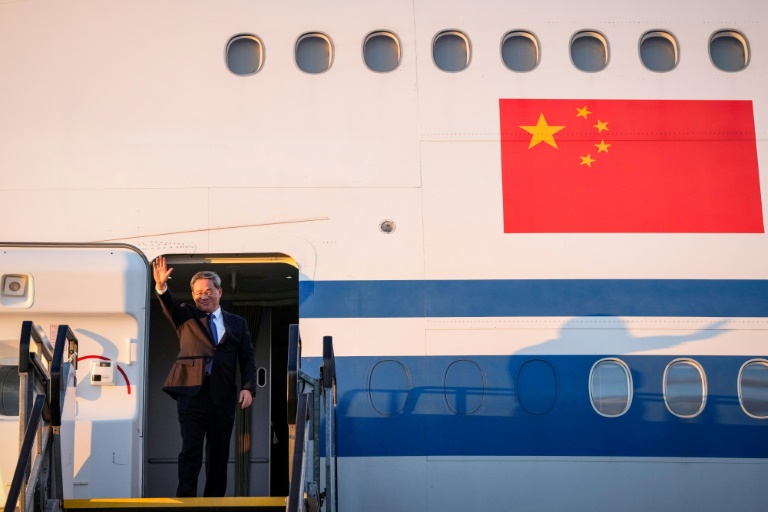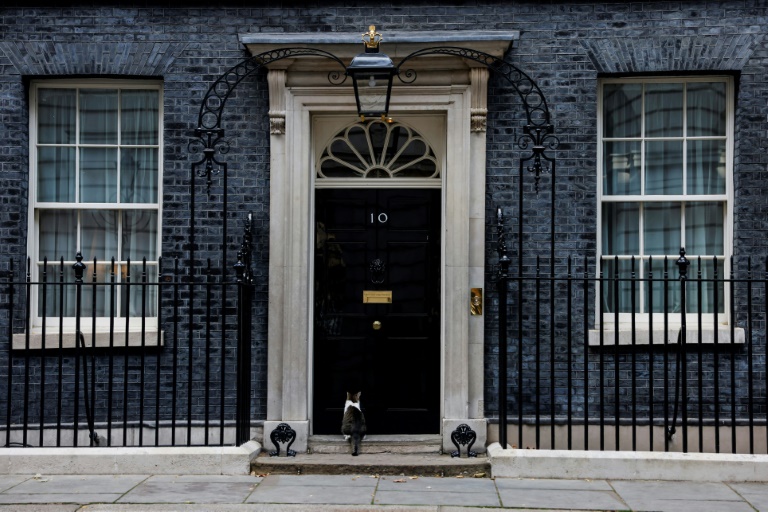Chinese Premier Li Qiang is toasting a turnaround in trade ties with Australia on Sunday with a trip to a major winegrowing region that was hit by Beijing’s sanctions.
The highest ranking Chinese official to visit Australia in seven years, Li’s four-day trip offers the prospect of lucrative trade after Beijing lifted punitive measures against a string of major Australian exports.
China is by far Australia’s biggest trading partner, taking in nearly 30 percent of its exports last year including major commodities iron ore and coal.
Two-way trade reached Aus$327 billion ($216 billion) in 2023.
“Mutual respect, seeking common ground while shelving differences and mutually beneficial cooperation” are key to growing China-Australia relations, Li said on his arrival in Adelaide on Saturday.
The premier recalled Prime Minister Anthony Albanese’s fence-mending trip to Beijing last November, saying: “China-Australia relations were back on track after a period of twists and turns.”
Li is to visit winemakers in the famed Barossa region near Adelaide, hometown of Foreign Minister Penny Wong, who is credited with helping stabilise relations with China.
Wine was among a string of Australian exports, along with coal, wine, timber, barley, beef, and lobsters subjected to Chinese sanctions in 2020 during a diplomatic rift with the former conservative government.
Those sanctions cost Australian exporters an estimated Aus$20 billion ($13 billion) a year.
But they have been gradually lifted since Albanese’s government entered power in 2022 and adopted a softer diplomatic approach towards China.
Li and Albanese are set to hold talks behind closed doors in Canberra on Monday, encompassing fractious issues of foreign influence, human rights, rivalry in the Pacific and alleged “unsafe” behaviour by China’s military in the region.
But the Chinese premier, who will also head to a lithium mine in Perth, is focusing his visit on economic opportunities.
“Australia has endured a long period of deep freeze, where it was not possible to have any sort of official conversations with China, which I think is a bad situation,” said Melissa Conley Tyler, honorary fellow at the University of Melbourne’s Asia Institute.
Li’s visit sends a message that “Australia is back to being seen as a friendly country rather than the unfriendly, hostile country we were seen as during those years of maximum tension,” she told AFP.
Setting the warmer diplomatic tone, Li will first drop in on Adelaide Zoo where giant pandas Wang Wang and Fu Ni have been on loan from China since 2009.
Hopes are high that the pair — instruments of China’s so-called Panda diplomacy — will be allowed to stay despite producing no offspring in their time together.
“The pandas have been a great part of the lives of many Adelaide families and so we look forward to that continuing,” Australia’s foreign minister said in a television interview Sunday.
Behind the diplomacy, the impact of China’s trade measures lingers.
Chinese tariffs had effectively blocked premium Australian wine exports worth an estimated Aus$1 billion a year.
Three months after they were scrapped, Australian wine producers remain hesitant to rush back into pre-tariff levels of trade with China, said Paul Turale, marketing manager at industry body Wine Australia.
“It will take some time to grow to what the industry was before,” he told AFP
Australia’s rock lobster industry, one of the last still suffering under the Chinese sanctions, is hopeful that Li will remove them, too, during his visit.
“More than 20 percent of Ausrtalian jobs reply on trade, so growing our export opportunity is fundamental to Australia’s continued economic success,” Business Council of Australia chief executive Bran Black said ahead of the visit.
“Australia’s trade with China will continue to be a priority and we are pleased there is a continuing stabilisation of the relationship.”







